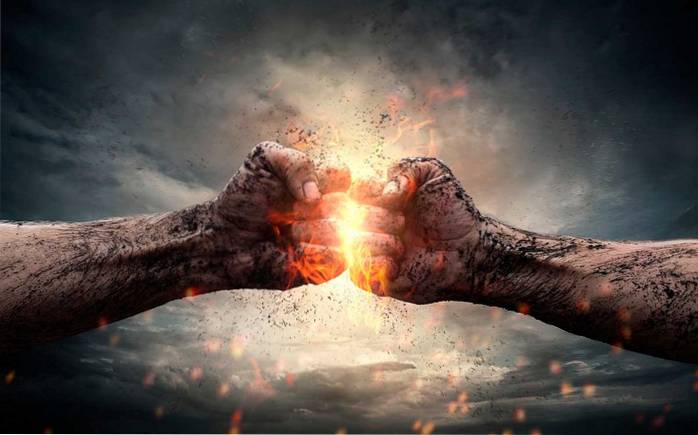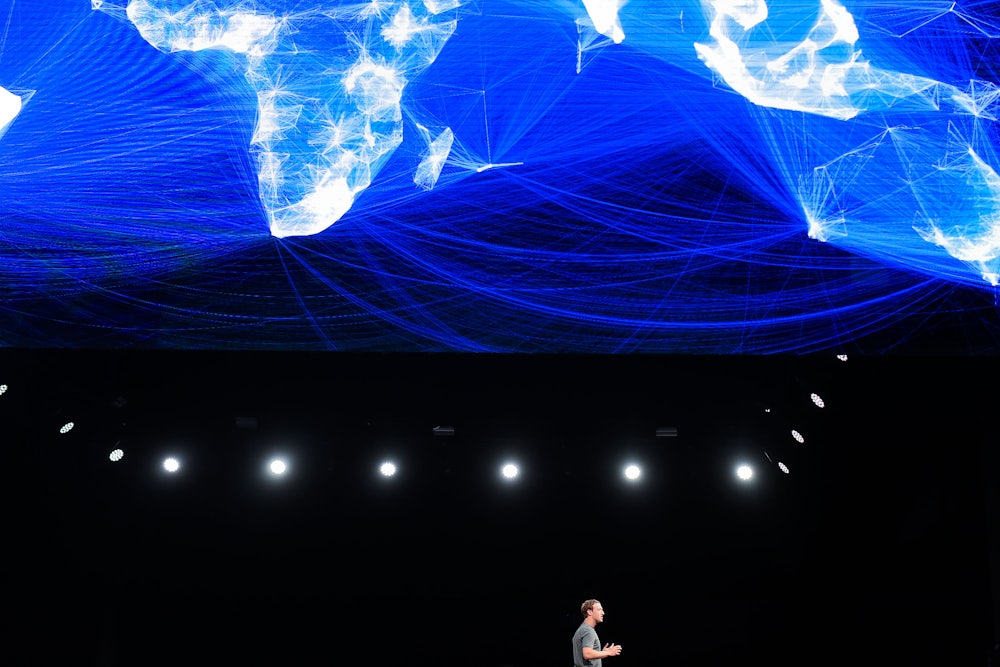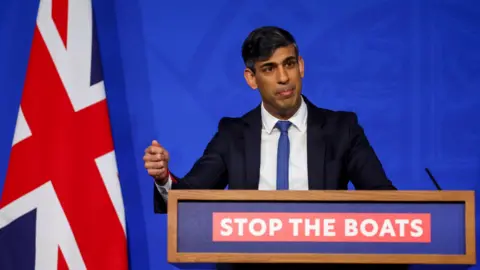( Fifteen minute read)
The human being is apparently the most aggressive and cruel species that has ever inhabited the Earth: There is no other animal that kills members of its own species in such a systematic way as man does (Sangrador, 1982).
So it is not surprising that the current Ukraine war raises difficult political and ethical questions, because these day with technology we fail to see systematic polarisation, because we all assume good and bad are equally distributed among us, but that is just an abstract idea, far from the reality.
If western leaders think that their arms-length encouragement of Ukraine will bring about a Ukrainian military victory, then they are fatally misreading Putin’s intentions and resolve.
Russia’s progress may be slowed, but it’s highly unlikely to be stopped, far less pushed out of Ukraine, and in the meantime the grinding destruction and hideous war crimes continue.
The west’s current approach of supporting Ukraine’s war aim of defeating the aggressor, and providing arms for that purpose while pointedly avoiding direct military intervention, is guaranteed to prolong the war and it is not at all clear that the kind of support we are giving (and not giving) is the right way to go about preserving the Ukrainian nation.
One thing is certain it is that Putin will never accept defeat.
He is already too deeply invested in this war to back off with nothing to show for it.
If Russia’s aim was to exterminate the Ukrainian nation, then the west’s approach is helping to do just that. Encouraging the Ukrainians to continue, however just their cause, is merely making their country uninhabitable.
Of course as with any war the problem is how what and where should support be given but in the background of any war there are those supplying ammunition and arms to both the aggressor and the opposition.
Large defence companies are already seeing their share prices go up as investors anticipate the impact of the war on profits.
Thales shares have risen by 35% since the invasion, while BAE Systems shares are up 32%. Lockheed Martin has seen an increase of 14% and Aero Vironment 63%.
Supplying weapons offers no effective means of reducing violence.
————————————
In wars there is a profound failure to mourn loose of life, because there is nothing good enough to allow the process to begin, leads to an enactment where loss is transferred usually bodily into another.
We accept that no one has the right to take another’s life, however, justified their grievances.
It is true that some people can feel that their own identity, country, belief system, are so under threat that the annihilation of the other, to preserve their own belief systems, is sometimes justified. The aggressive attacker has forfeited their rights and therefore it’s okay to attack them, to kill them, or to hurt them.
In the case of wars people are violent because it feels like the right thing to do.
It follows that supporting Ukraine is the right thing to do, with Britain and Poland now suppling Tanks.
So where are we with the War?
I think when we look at the state of the world we have two conflicting regimes at war with each other: We tend to think that the seed of violence is outside of us and we are exempt from it but ” violence begets violence ” laying the seed for future clashes.
Religious fundamentalism in the form of a particularly virulent form of Islam, which most Muslims do not of course adhere to.
The other is an unfettered fundamentalism, a form of Neo-liberal secular market economics, that promulgates a vicious form of Social Darwinism. “We are all revolutionary in our shopping habits now,” that most of us don’t want to adhere to this idea – but unwittingly play a part in it – and until we realise the damage to climate change and the plight of refugees.
We are actually in a period of profound economic crisis where the human industrial system could threaten to destroy all traces of tradition, certainty and belief.
It is possible that no other currency of communication can be imagined other than death to the enemy. Hence, the dynamic can be perpetuated down the generations. The desire for vengeance and the righting of wrongs can shape an entire life.
Instead of listening to the grievances arising from the Middle East, we in the West continue to employ professional soldiers to perform what might seem acts of state-sanctioned terrorism in the name of foreign policy such as the invasion of Iraq, still a highly peculiar response to the 9/11 attacks.
Can there ever be just wars?
The answer to that question (in a democratic society) is almost always going to be “no” because the test of “Is it a last resort” which is one of the tests for a just war, is never going to be reached, because there is always in a democratic society, an alternative way of reaching your goal, which is to pursue things through the normal political process.
Is this true?
Some violence is more rational or ethically justifiable than others, such as surgical strikes, or limited warfare, the use of things like drones has become very common. The remote drone operator carrying out clean surgical hits allegedly in our name. The pleasure of an Isis general being blown to pieces.
But the question remains. Can there ever be a just war?
How many of us for instance would think it was worthwhile for anyone’s sons or daughters to die in the service of keeping the Falklands Islands British, or during the invasion of Iraq, whether this action is seen as an atrocity or ‘liberation’.
Nelson Mandela was deemed a terrorist, not a rebel with great cause, he remained on the US terrorism list most of his life. Reagan and Thatcher both viewed Mandela as a threat. Indeed, he was at first involved in necessary violent guerrilla actions against the apartheid state.
You can’t defeat an ideology, when it feels based on a justified grievance that belief systems are under threat from the modern world and a wish to regress from the advances of modernity, which seems to lack all spiritual awareness except that of materialism.
——————————————-
Can violence be fought with violence? Of course it can.
The paradox of fighting violence with violence is within psychology two opposing concepts, one called “compassion fatigue” and the opposite “substitution trauma.” Both associated with chronic stress and its effect on ceasing to feel empathy for others or feeling sympathetic to others..
Currently, because we are shown violent images daily on Television stations and social media it make’s us reflect on the consequences suffered by victims of aggression as well as the different types of aggression that are shown, making many of these scenes appear as “happy violence.”
However, luckily it is still very rare that you’ll see anybody claim that hurting someone else is an inherently moral thing to do.
Unfortunately morality as understood and practiced by real-world human beings, doesn’t always prohibit violence. In fact they make the case that most violence is motivated by morality.
An emotional abduction (Goleman, 2012) can trigger our violence: a lack of self-control, an unexpected event, the protection of a loved one, defence against an out-of-control animal, or even an attack of zeal, can trigger our most heinous thoughts.
Social interaction influences the brain and the brain influences social interaction.
Social behaviour is learned mainly by observing and imitating the actions of others, and secondly, by being directly rewarded and punished for our own actions. In this regard Putin points to the extermination of the native Indians in West (The Establishment Americas, war list is endless ) as defence of his actions.
The best way to change someone’s behaviour is to understand what motivated that behaviour in the first place.
Political leaders are right to condemn terrorist attacks – we do not have to accept the moral codes of others in order to acknowledge that they exist. However, long-term solutions to terrorist atrocities, as well as many other forms of violence such as wars in our society, might benefit from a taking a perspective that the perpetrators believe that what they are doing is good, just, and right.
Russia’s age-old security concerns, perhaps even the very logic of basing today’s international frontiers in that part of Europe on what were internal borders in the USSR, drawn up by communist leaders precisely to prevent Soviet republics and regions from being viable independent states.
“People are only as mad as the other people are deaf” – Adam Philips.
The greatest acts of violence in the last century have in fact been perpetrated by western colonialism and economic expansionism, we are now arguably reaping the backlash of those policies. The exploitation of the poor by the neoliberal economy is one huge factor in social and state violence, which leads to wars and militarism.
So to create a violent attack firstly ignore the underlying factors, poverty inequality and western exploitation, the severe effects of climate change, global warming, arguably caused by unscrupulous western economic policies.
No day goes past without some senior western politician proclaiming that Ukraine will be “successful” and that Russia is “failing” which is clearly nonsense. The risk involved in this – of a third world war – is obvious, and it’s why the west refuses to intervene directly.

Like all wars, Russia’s barbaric attack on Ukraine will finish at some point. How it ends will determine whether Europe is destined to live with a festering sore of bitterness and division at its heart.
How will the war end?
First, there is outright victory by one side or the other. Second, there is a negotiated ceasefire leading to a peace settlement of some kind. Third, an inconclusive outcome, with the fighting gradually subsiding leaving a stalemate or frozen conflict.
The most pressing question is how do we prevent a repeat of the most violent conflict that humanity has ever seen, the second world war.
Remember that world war two didn’t come out of nothing its starting fuse was the peace agreement of world war one.
Outright victory with unconditional surrender by the losing side is rare and military victory frequently led to a much more ambiguous political outcome sowing the seeds of future conflict.
The third way conflicts end is in a stalemate, with no clear winner and no peace agreement, but a gradual ebbing away of the fighting, leaving a more or less chaotic and unstable situation.
None of these analogies will apply precisely.
How will Putin’s latest Ukraine war end?
Outright victory by one side looks the least likely. Even if Russia managed to topple the Zelensky government and install a puppet regime, subjugating the whole country would require a massive army of occupation, far larger than Moscow can muster.
Moscow and Kyiv have set out their opening positions. But these are light-years apart.
Any amputation of Ukraine’s territory will result in a hostile stand-off, with regular upsurges of fighting along a line of separation. Another words back to a full-scale Cold War with Russia.
If NATO were to actively enter the war and make a quick, massive and decisive strike to cripple Russia’s invasion forces it would be the demise of the EU catapulting it back to a situation of the 1930s where there were individual states in Europe pitted against each other.
In the end there will be no classless society or reign of the Just. It will just carry on in the same kind of way. Meanwhile, all we have is the means. The means is how we will be judged.
As some put it: Peace only be achieved without weapons.
We create refugees with our economics and then blame them for wanting a better life.
Tell them (they have names)
and when they turn the bodies over
To count the number of closed eyes. And they tell you 800’000: you say no. that was my uncle. He wore bright coloured shirts and pointy shoes.
2 million: you say no. that was my aunty.
her laughter could sweep you up like
The wind to leaves on the ground.
6 million: you say no. that was my mother.
her arms. the only place I have ever
Not known fear.
3 million: you say no. that was my love.
We used to dance. Oh, how we used to dance.
Or 147: you say no. that was our hope. Our future. The brains of the family.
And when they tell you that you come from war: you say no. I come from hands held in prayer before we eat together.
When they tell you that you come from conflict: you say no. I come from sweat. On skin. glistening. From shining sun.
When they tell you that you come from genocide: you say no. I come from the first smile of a new born child. tiny hands.
When they tell you that you come from rape: you say no. and you tell them about every time you have ever loved.
Tell them that you are from mother carrying you on her back. until you could walk. until you could run. until you could fly.
Tell them that you are from father holding you up to the night sky. full of stars. and saying look, child.
this is what you are made of. From long summers. full moons. flowing rivers. sand dunes.
you tell them that you are an ocean that no cup could ever hold.
JJ Bola | poet
————————————–
In a world where there are disadvantages, neglect and unfairness, there will always be collective and individual activity to reverse the inferior position, by finding other bodies and minds to carry it.
The thing is, no one would ever engage in something that serves the purpose of one’s species’ survival unless one found some pleasure in it.
But does this concept imply while making the revolution enjoying the violence in the process is okay?
Is there really such a convenient separation between a revolution (or rebellion or civil war) and everyday life violence?
If so, one has to use a different register for judgement.
People could receive reinforcement or rewards for their aggressive behaviour in different ways: directly or indirectly.
Every act of violence can feel justified with the currency of communication is the exchange of pain.
It is clear that such questions can and must be discussed.
You can’t defeat an ideology, when it feels based on a justified grievance that belief systems are under threat from the modern world and a wish to regress from the advances of modernity, which seems to lack all spiritual awareness except that of materialism.
When the state is violent, is violence justifiable?
What happens when we tolerate the intolerant? And when we spare the life of a killer? Do we become their enablers?
Is assassination a more justifiable form of political violence than war?
The ethics of selective assassination as a tactic in warfare has not really been given much of consideration until the invention of drones, and with their appears, the acceptance, increasingly that you can execute people before you have tried them.
Freedom is a form of human flourishing that we can only develop or aspire to acquire in relationships with other people.
Violence is destructive of the great fabric of human association that I need in order to develop as a free person.
For example, the Taliban was supposed to be crushed by the invasion of Afghanistan; a very similar kind of organisation to ISIS or ISIL. In the end, as John Alderdice has said, they have to be talked to.
To the Russian President: Vladimir Putin.
Your time will end.
Please end your invasion of the Ukraine . It’s not working. Whatever your reason was for the invasion is no longer valid. You are only hurting your own people. The scansions are incredible and direct and hurtful for your people. It’s not working and it’s not worth destroying both the Ukraine and Russia. However, if you insist on being closed minded an ignorant the please go about it. You will only end up destroying yourself. What you are doing is crazy and stupid.
All human comments appreciated. All like clicks and abuse chucked in the bin.
Contact: bobdillon33@gmail.com









